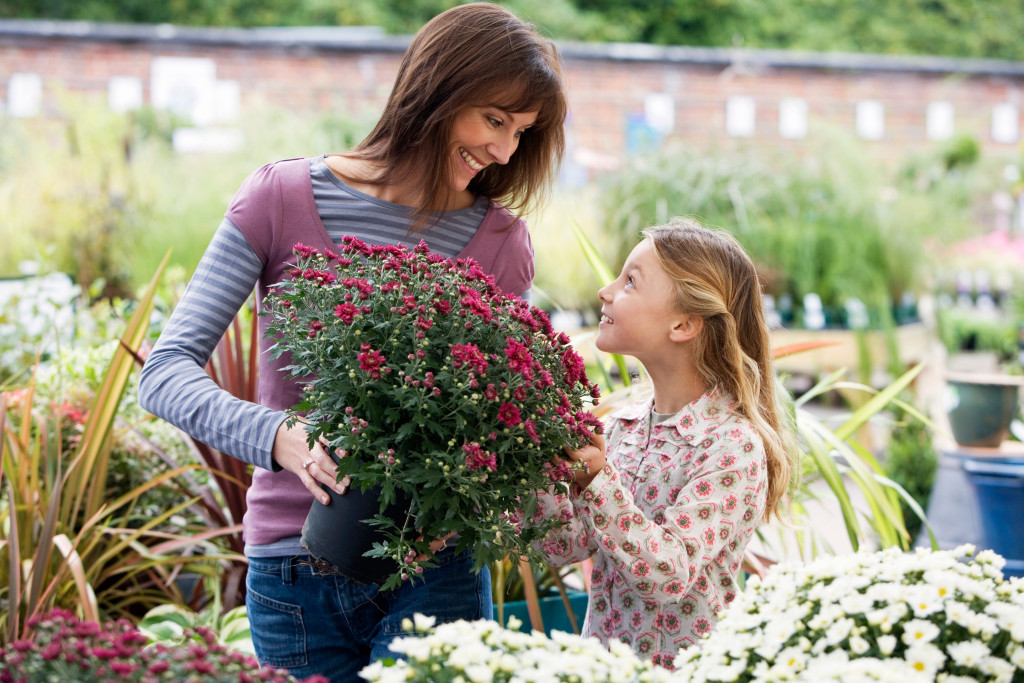Having a garden at home is a great way to enjoy the outdoors, get some exercise, and grow your food. But gardens can also be a lot of work. Is your garden looking a little lackluster? Are the plants not growing as tall or blooming as brightly as you’d like? If so, don’t worry – you’re not alone.
A lot of gardens suffer from neglect, and it’s easy to fall into bad habits when it comes to caring for them. But with a few simple tips, you can get your garden back on track and healthy again. Here are 8 tips to help you keep your garden healthy and blooming all summer long:
Water regularly and deeply
Plants need water. It’s as simple as that. But many people don’t realize that plants need water deeply, not just a little bit on the surface. Watering deeply encourages roots to grow deeper, which makes plants stronger and more drought-resistant. It’s also crucial to water your plants regularly. And what best way to do that than to set up an irrigation system?
You can consult a company that offers irrigation systems installation so that you can ensure that your plants are getting the water they need when they need it. Irrigation systems require professional installation, but they’re worth it – especially if you have a large garden.
Fertilize regularly
A healthy garden starts with healthy soil. Fertilizer provides plants the nutrients to grow strong and produce bountiful harvests. But with so many different types of fertilizer on the market, it can be tricky to know which one is best for your garden. Here are a few things to keep in mind when fertilizing your garden:
- The fertilizer you use will depend on the type of plants you are growing. For example, nitrogen-rich fertilizer is great for leafy green vegetables, while phosphorus-rich fertilizer is better for flowering plants.
- It’s important to apply fertilizer at the right time of year. For most plants, the best time to fertilize is in the spring, when they are just starting to grow.
- Fertilizer is not a one-time treatment. Plants need regular doses of nutrients throughout the growing season. How often you need to fertilize will depend on the type of fertilizer you are using and the needs of your plants.
Mulch your garden beds
Any gardener knows that mulch is key to having a healthy garden. Mulch helps to regulate soil temperature, prevents erosion, and reduces the amount of water that evaporates from the soil. It also helps to prevent weed growth and can improve the appearance of your garden beds. There are many different types of mulch available, so it’s important to choose one that is right for your specific needs.
For example, organic mulches such as bark or straw decompose over time and improve the soil’s fertility. Inorganic mulches such as gravel or stones do not provide any nutritional benefits, but they can help to control weeds and improve drainage.
Prune regularly

If you want to keep your garden healthy, one of the best things you can do is prune regularly. Pruning helps to encourage new growth, remove diseased or damaged leaves and stems, and improve air circulation. It’s also a great way to shape plants and keep them looking their best. There are a few things to keep in mind when pruning, however. First, be sure to use sharp, clean tools to avoid damaging the plant. Second, make sure you know which parts of the plant can be safely pruned – some plants are very sensitive and can be easily damaged. Finally, don’t overdo it – a little pruning goes a long way! With these tips in mind, you’ll be sure to have a healthy, beautiful garden in no time.
Avoid using chemicals
Any experienced gardener will tell you that maintaining a healthy garden requires a lot of hard work. From weeding and watering to fertilizing and pruning, there’s always something to be done. However, one of the most important things you can do for your garden is to avoid using chemicals. Chemicals can remain in the soil for years, harming plants and polluting the groundwater. They can also kill helpful insects, like bees and ladybugs, which play a vital role in the ecosystem. Instead of relying on chemicals, consider using natural alternatives, such as compost or mulch. Not only will you be doing your part to protect the environment, but you’ll also end up with a healthier, more beautiful garden.
Final thoughts
A healthy garden is a happy garden. By following these simple tips, you can keep your garden healthy and blooming all season long. So get out there and get started on your green thumb today!

